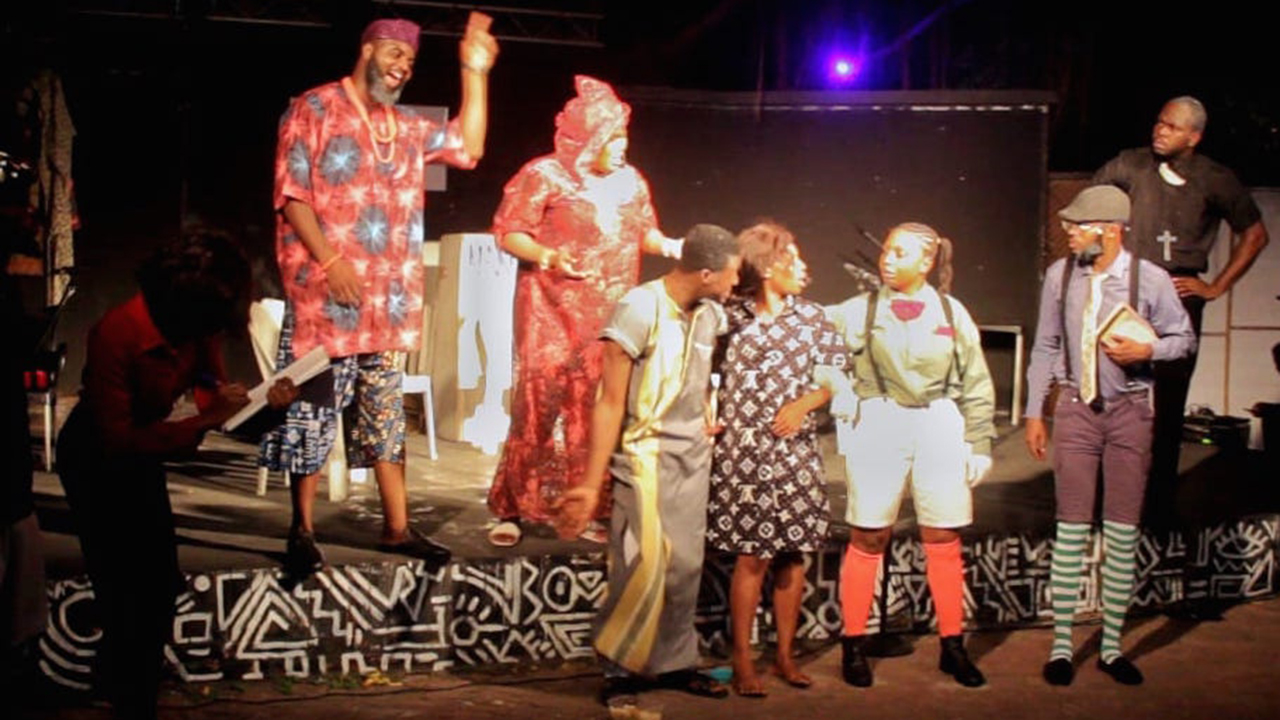
Naomi Rebekah Wolf, an American author, journalist and conspiracy theorist, must have witnessed the hopelessness of the downtrodden, the intrigues in governance, the mudsling among political office holders and the treachery of both business people and opinion moulders, when she said: “Pain is real when you get other people to believe in it. If no one believes in it but you, your pain is madness or hysteria.”
Ola Awakan captures this plethora of issues in his play, titled: The Madness That Cures My Land.Performed at the amphitheatre of Freedom Park, Lagos, by Artswax Communication with support from Just Theatre House, the play directed by May Efe Okanigbe and Awesome Duru, mirrors how every member of the society, including the mad person on the street is playing god at his/her own corner and contributing to the narrative that is daily reshaping the nation in all facets of life.
The play exposes man’s use of power and how many rich people derive joy, seeing indigent and hapless citizens cry for help that would never come.
With multiple themes and sub-themes that dwell on love, karma, duplicity, poor parental upbringing, leadership tussle, among others, the play brings to the fore the various ways each of the federating tribes that make up the political enclave called Nigeria solve their ethnic problems and assumed national challenges. It showcases our multiplicity, relativity and diversity.
Examining the impact and friction of the interactions among every unit of the nation’s macrocosm and how such relationships can balloon into either a bigger crisis or a factor for growth and development that would advance the nation and humanity, the play highlights the need for our various leaders and the led to be forbearing and learn from one another.
Using the National Association of Nigeria Landlords (NANL) as a typology of the Nigerian National Assembly and Alhaja Bowosere (Seyi Ogbonnya) as the Speaker, the play showcases how the nation’s lawmakers most times leave national issues to deliberate on frivolity or engage on discourse that will be to their own advantage at the expense of the masses that elected them. This is assertive in the allusion to the platitude of “tenants must pay or you send them away, so that, landlord can collect another agency fee, caution fee, agreement fee and commission.” This highlights the impunity in the land, an arrogance that could lead to depression for the tenants that would not be able to pay the incessant rent increases.
Not ending there, the play gives some knocks on our judiciary that suppose to be the last hope of the common man turning to purveyor of miscarriage of justice; as justice is on cash and carry.
It also draws attention to the need to identify with our tradition and using its ethos to reorganise the society for the betterment of all. This could be seen in Reverend Paul (Gerald Ochuba) who undermines the powers Baba Ijebu (Tosin Danjuma) concoction, but later finds it helpful when Baba Ijebu used it to cure the mad woman and to bring out the truth in the concealed and complex entangle of paternity.
Utilising a play-within-a-play, The Madness That Cures My Land unveils how Professor Colloquial (Richard Patrick), a high ranking personality within the academia and the society gets involved in a secret love affairs with Benson’s (Israel Audu) mother-in-law to the point of getting her pregnant.
The pregnant woman (Pere Samson) nurses the child alone, but becomes insane as a result of trauma. In her good mood she would come at twilight to see the Professor with the hope of continuing an affair the egghead has long forgotten. Although, for old times sake the don do secretly give her some time, in which they would dance.
Now a deep contrast, the Prof struggles to let her go, but like a leech the mad woman won’t leave. To stop this eyesore, the Professor and her personal assistant devise a plan to secretly eliminate the insane woman.
To do the hatchet man’s job, Benson’s wife and son come to the fore. Benson’s wife and son, though no blind, have been going around the neigbourhood claiming to be blind and begging for alms.
Knowing the duo are tricksters, Prof’s assistant induces them with huge sums of money to kill the woman or else their tricks will be exposed. They ready accept the offer so they could remain in business.
On the day to carry out the dirty job, Benson’ wife discovers that the mad woman in question is her mother. She goes back home troubled and later discloses the secret deal to the husband.
Benson becomes angry of the deal and decides to slug it out with Prof, who happens to be in the same club with him. Divulging the secret, the parliament discovers that Prof was responsible for the pregnancy that turned out to be Benson’s wife.
Here, the play notifies the society, especially those elected into high positions to speak for the people, on the need to be mindful of their actions and inactions, as every action of man has a consequence.
With this, the playwright goes mystical with the intention to make man behave aright and to discontinue the fetish for mundane things that is making everyone insane.
Although long with the background music not in consonant with the projections of the characters, the play is apt and the character interpretations were superlative.





